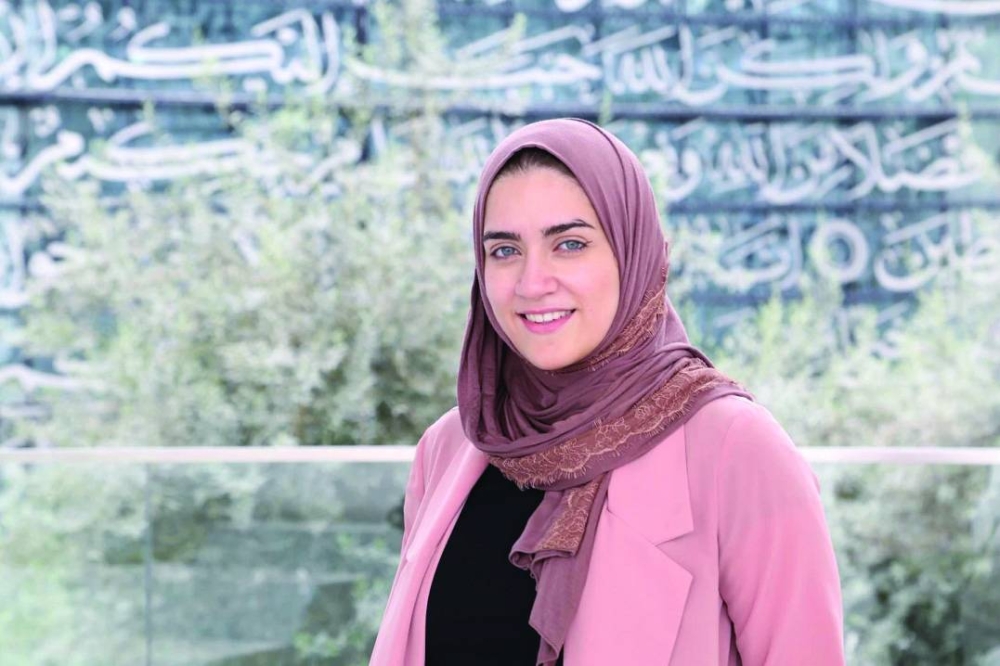Qatar Foundation (QF) graduate Bayan Khaled’s family is Palestinian. However, in 1948, her grandparents were forced to flee their homeland.
It was not until they migrated to Canada that they were finally given passports, and with them, freedom – and the opportunity to return home.
“We went on our first-ever family trip to Palestine in 2018, and it was only because we had been given Canadian passports,” said Khaled, who is also a research fellow at the College of Islamic Studies at the QF’s Hamad Bin Khalifa University (HBKU). “It's ridiculous that we have to enter our own country with a different passport.”
She was born and raised in Qatar and studied Business administration at QF partner university Carnegie Mellon University Qatar, but halfway through the course, she discovered that she had a keen interest in journalism.
“I feel very passionate about the Palestinian cause. Therefore, I wanted to become a journalist,” Khaled said. “I did my master's in journalism – it’s how I want to tell my stories, and the stories of others.”
For Khaled, her visit to Palestine was not like any other normal trip, so she decided to capture her trip on film.
“I decided to make a documentary, but I was also mentally preparing myself that this may be the first and the last time I ever visit Palestine, because if this documentary goes viral, there is a high possibility they won't let me enter ever again,” she recounted.
Khaled said that although that thought was sad, it was at the same time empowering: “Because I was going for a purpose. I was going to see my country of origin, see my people, see the truth, and document it for the rest of the world to see as well.”
On her trip, she noticed that Israeli soldiers emphasised that the land did not belong to the Palestinian people, and that they needed to be careful and not get comfortable.
“Honestly, while I was there, it was much harder than I expected. Seeing the Israeli soldiers with their machine guns, marching back and forth, monitoring the surroundings, and staring at us, trying to tell us that we don't belong here, was hard,” Khaled said. “This is the message they send us, with their looks and their behaviour towards us.”
She spent a few days on the occupied side, and she observed that there were no soldiers wandering around because everyone there is either a Palestinian with an Israeli passport or an Israeli soldier.
Khaled has created her five-episode documentary *Tourists in our Homeland in a mini-series format.
It covers topics such as the country’s history, the current situation, and information about the different types of Palestinians around the world, including those in Palestine.
Her manager at the HBKU had been following her journey in Palestine, and said he liked how she was documenting her trip.
“My manager was creating a list of projects, and one of them was writing a children's book that needed to be on a specific topic, and I thought, what better topic than refugees,” Khaled said.
So, she started writing to tell children around the world that there are refugees, and how important it is to be generous and kind to them because, most likely, they would be in new and unfamiliar places having a hard time adapting to a new life.
When there is some form of injustice happening in the world, Khaled said that she can’t just sit back, relax, and say nothing.
“We had something so precious stolen from us – even if it wasn't stolen from us personally, it was stolen from our grandparents or our parents,” she pointed out. “We feel even more strongly about it. The more they try to strip us (of) Palestine, the harder we will fight for Palestine, and the stronger we'll feel connected to Palestine.”
“Palestinians are very resilient people, proud, patriotic, and they will continue to fight and will not stop until Palestine is free,” Khaled said.

Bayan Khaled
